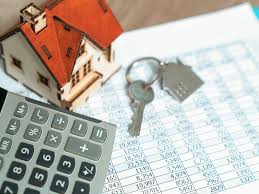Think about buying real estate and renting it out to be used as a vacation home for other travelers. If you intend to invest in real estate, you may take out a mortgage in the same way that you could if you were buying a home for yourself. Perhaps you want to purchase a few apartment complexes so that you can receive monthly income from the rents, but you need financial support to do so. Knowing how much the minimum and lowest down payment for an investment property can help with that.
Before you get your first investment property loan and start making money, this is everything you need to know, so continue reading.
Down Payment for Investment Property
A down payment is the sum of money a buyer pays at the beginning of the process of buying an expensive good or service.
The down payment only covers a percentage of the overall cost, and the buyer frequently takes out a loan to cover the balance.
A down payment is the initial, non-refundable payment made upfront when buying a high-priced item, like a car or a house. The remaining balance is then paid using a loan from a bank or other financial institution.
An investment property is a real estate purchased with the intent of profiting from rental income or capital growth.
Purchasing investment property requires a different down payment than purchasing a permanent dwelling. It’s crucial to comprehend the distinctions between the two before making an investment in a rental property.
A single investor, a pair of investors, or a group of investors often buys investment properties.
We need more financial stability for investment properties than for permanent residences, especially if you intend to rent the property out to renters.
Most mortgage lenders require a 15% down payment on investment homes, but not on primary homes.
How to Obtain Financing for Investment Property
You must fulfill the following loan requirements in order to increase your chances of getting approved for a conventional investment property loan:
● A down payment of at least 15%: Your minimum required down payment, however, can be lower if you’re purchasing a multi-unit property as your primary residence and using a government-backed loan.
● A score of at least 700: You’ll need at least a 700 credit score unless you put down 25% or more on an investment property. However, raise your score to 740 or better in order to receive quotes for the lowest mortgage rates.
● A DTI ratio of no more than 45 percent: You may not pay more than 45 percent of your gross monthly income toward debt each month.
● At least six months’ worth of reserves: To purchase an investment property, you must have cash reserves for at least six months.
● When you are between tenants, your lender needs proof that you will be able to make your mortgage payments.
Factors to Consider Before Making an Investment
A few elements of the puzzle for investing in real estate are time, down payments, and profits. Before making an investment, keep the following factors in mind.
● How Is The Housing Market Changing?: You should pick a home that appreciates in value over time. But how do you forecast which regions will rank as the next greatest spots to buy real estate? You can do this by comparing a region’s rental and housing market indicators to property values and taxes.
● A situation when two people share legal responsibility: If your tenants notify your partner about a bug problem and he doesn’t address it right away, they may sue you both because you’re both liable for maintaining a livable environment.
Additionally, you have equal ownership rights to a single property if your marriage ends and you split the cost equally.
If you buy a rental property with a partner, make sure they’re reliable, accountable, and proactive with maintenance.
● What Will Property Taxes Cost?: Homeowners who pay property taxes contribute to the local community and government. Property taxes fund public schools, libraries, and other neighborhood initiatives.
Your home’s value has a direct impact on how much property taxes you pay. You pay more, and vice versa if your house is worth more money.
How to Put Down Payment on Investment Property: Saving Methods
- Clearly define your savings objectives
- Pay off your debts and so forth.
- Create separate savings account for the down payment
- Give it a priority
- Reduce your spending
- Increase your income by doing some part-time jobs
- Put aside any unforeseen funds.
Asking aspiring real estate investors what is stopping them usually results in response regarding money.
Many people are so afraid of putting money down on a rental property that they never consider financing options.
Although this is understood real estate investors must take the first step if they want to succeed.
Down Payment Funding for Investment Property
We can fund the down payment for an investment property in a variety of ways
#1. Portfolio Lenders
Many investors view portfolio lenders as a fantastic place to start. A specific class of private lenders, called a portfolio lender, offers to finance particular investments.
When compared to conventional mortgage loans, portfolio lenders are more amenable to lower down payments. In exchange for a somewhat higher interest rate, they often do this.
#2. A Loan From Fannie Mae or Freddie Mac
This is another source of money for a down payment on an investment property. The lending requirements for these options are typically simpler and include a minimum credit score, verified debt-to-income ratios, and loan-to-value ratios.
However, loans from Freddie Mac and Fannie Mae are trustworthy sources of credit. Amazingly, both offer down payments that are somewhat lower than those for a mortgage on a principal property (depending on the number of units).
#3. Conventional Loans
In most circumstances, you’ll need a credit score of at least 700 to be eligible for a conventional loan with a 15 percent down payment on a one-unit investment property.
One exception is if your debt-to-income ratio is 36% or less, you need a 680 credit score. A 25% down payment is needed for an investment property with two to four units.
#4. Government-Backed Lending
You may be qualified for a government-backed loan from the Federal Housing Administration (FHA) or the U.S. Department of Veterans Affairs if you intend to purchase a multi-unit investment property that will also serve as your primary residence (VA).
House Hacking
House hacking is one of the more inventive ways to invest in real estate. Investors who “house hack” buy a home or a small apartment building as their permanent residence, rent out a spare room or more units, and utilize the monthly rental revenue to pay off the mortgage as rapidly as feasible.
We can also decrease the amount of the down payment required to purchase a home through house hacking.
Generally speaking, investors finance investment properties with a down payment of 25%.
For a primary residence or a multifamily home with one primary unit, FHA loans allow a 3.5 percent down payment.
House Flipping
Flipping houses is a practice that mostly involves purchasing an investment property, remodeling it, and then reselling it for a profit in the USA.
Investors in real estate who flip houses are experts in a field that most homebuyers are not.
They will pay top dollar for the most unsightly house you and I would pass by. It’s not “haunted” or anything of the sort, but it is simply “ugly.”
These investors renovate such buildings and it becomes new and attractive to buyers.
How Much Should I Save Aside to Make a Down Payment on an Investment Property?
How much you should put aside for a down payment is a question without a clear solution.
The type of financing and the characteristics of the investment property itself will both have an impact on the down payment you will require.
You will, however, need a least 20% down payment for the majority of mortgage lenders.
You can find the typical down payment in your city to get a more precise idea of how much you should save aside.
Minimum Down Payment for Investment Property
The minimum requirement for a down payment on an investment property is 15%.
But a number of variables, including your credit score, debt-to-income ratio, loan program, and property type, affect the down payment you’re actually needed to make.
Lowest Investment Property
You might be eligible for a fixed-rate loan with a down payment of as little as 3.5 percent, just like with conventional FHA loans.
If you intend to utilize this method to buy a rental property, however, you will have to reside there.
Federal Housing Administration (FHA) mortgages are frequently available to people with moderate credit scores, insufficient funds for a down payment, and other qualifying factors.
This is due to the fact that FHA loans have lower credit requirements and minimum down payments than conventional loans. Unlike conventional loans, the government backs FHA loans.
What is the Rule for Investment Property?
The 1% rule is a way to compare the price of an investment property to the amount of gross money it will bring in. The 1% rule says that a property’s monthly rent must be equal to or greater than 1% of the buying price for it to be a good investment.
Can I Deduct My Down Payment for Investment Property From My Taxes?
No, It could sound like qualified real property is a cover for a qualification, but it really means property improvements. These renovations do not include a down payment. You’ve presumably inferred from the foregoing that the down payment on an investment property is neither directly tax deductible nor can it be claimed in the same tax year.
How Do You Calculate Return on Investment for Rental Property?
The easiest way to figure out a rental property’s return on investment is to take the annual operating costs and divide them by the annual rental money.
Conclusion
A larger down payment rarely helps more than it harms when flipping a house. Making a bigger down payment on a long-term rental property is a good idea if you can afford it.
Note also the minimum and lowest down payment for an investment property.
What steps have you taken to make your down payment for your investment property?
Down Payment for Investment Property FAQs
Can I invest in a Property without down payments?
Yes, getting assistance from the seller is another approach to buying a house with no down payment. In a loan arrangement known as “owner financing” or “seller financing,” the seller manages the mortgage procedure as opposed to a lending institution.
Can I deduct my down payment for investment property from my taxes?
No, It could sound like qualified real property is a cover for a qualification, but it really means property improvements. These renovations do not include a down payment. You’ve presumably inferred from the foregoing that the down payment on an investment property is neither directly tax deductible nor can it be claimed in the same tax year.
What Is the Minimum Down Payment for Investment Property?
The minimum requirement for a down payment on an investment property is 15%.
Related Articles
- HOW TO BECOME AN ACCREDITED INVESTOR: A Detailed Guide
- 230K LOAN; FHA Loan Requirements For 2022
- HOW TO PAY LESS TAXES; Simple Ways To Pay Less Taxes Legally
- TENANCY IN ENTIRETY; Detailed Explanation
- HOW TO FLIP A HOUSE; Steps to Flipping a House And Avoiding Unnecessary Mistakes.
- CLOSING COSTS: Who Pays Closing Costs?
- CASH TO CLOSE: Understanding & Calculating Cash to Close
- HOUSING EXPENSE RATIO: What It & How To Calculate it






